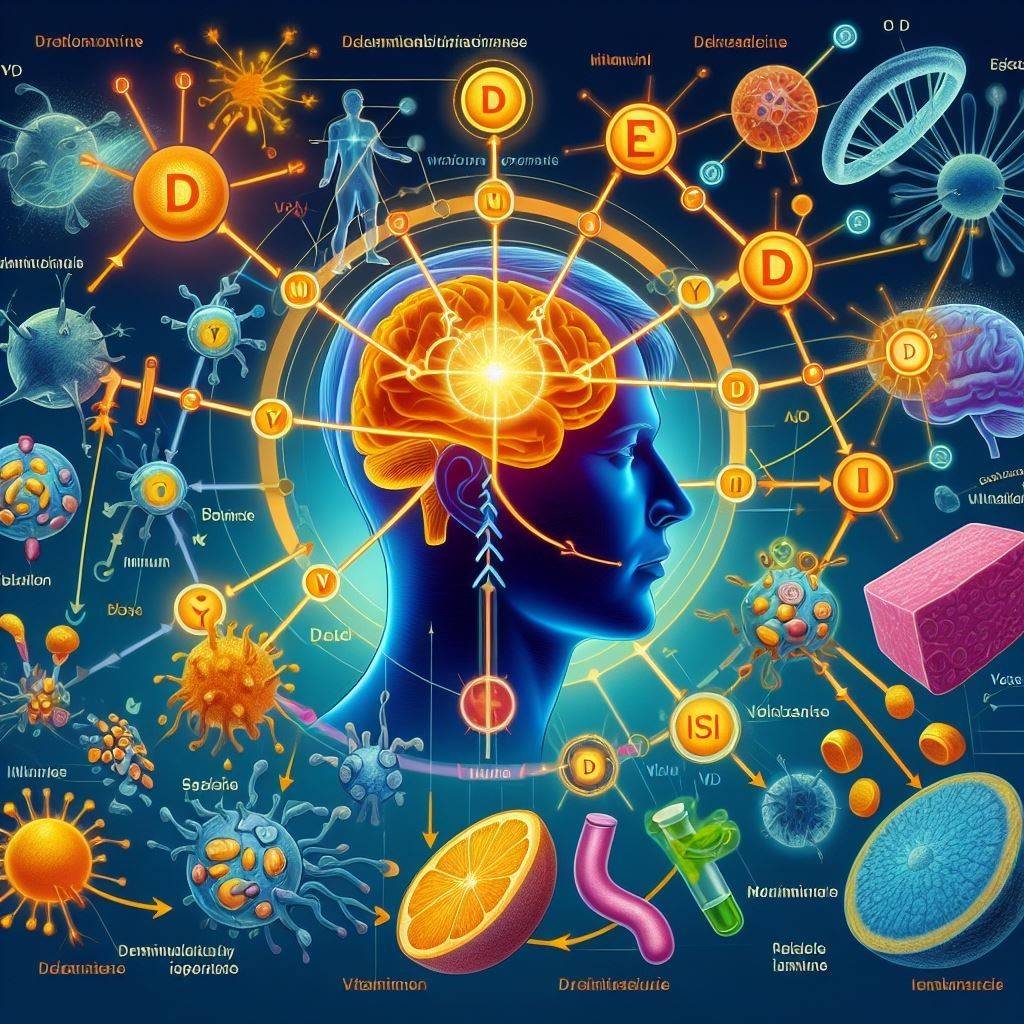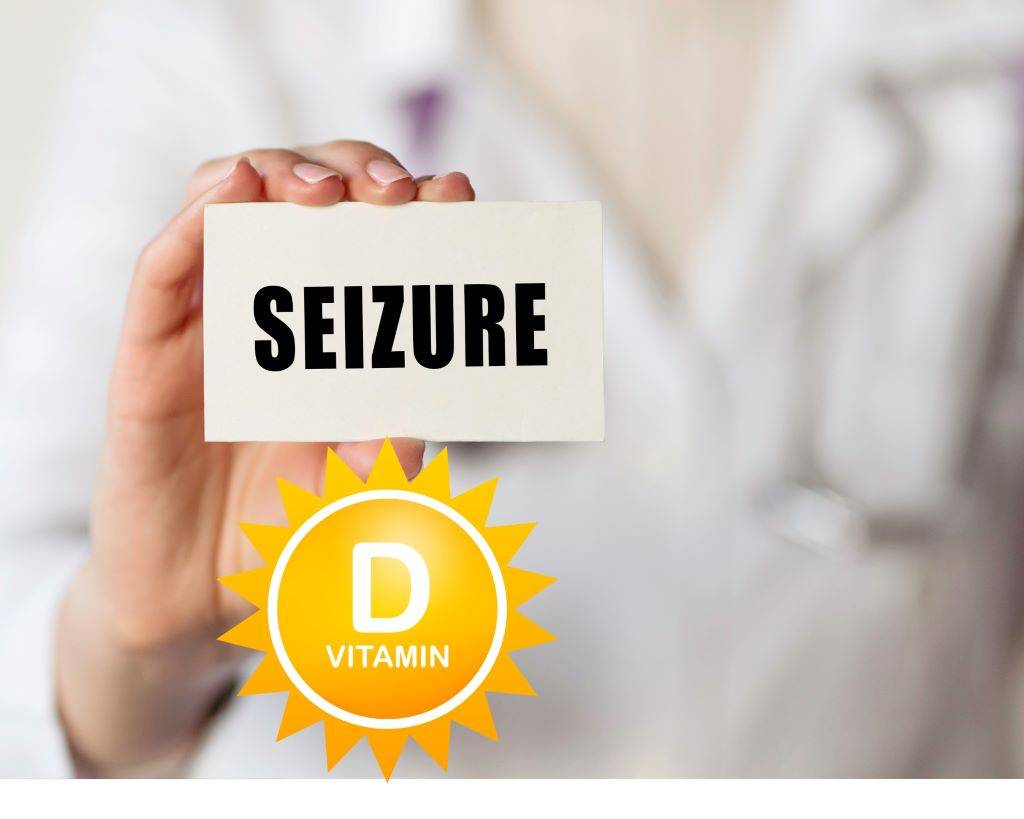What is the correlation between vitamin D and seizures: Deep Dive
Discover the latest research on vitamin D and seizures, exploring the correlation and potential benefits – Your trusted source for insights
We all understand the importance of vitamin D for our bones. It’s the trusty guardian that ensures our skeletons remain robust. However, recent studies hint at an intriguing relationship between this sunshine vitamin and seizures. Let’s embark on a comprehensive exploration of this intricate connection.
The Basics: What is Vitamin D?
Before we explore further, let’s start with the basics: Vitamin D, acquired from sunlight, diet, or supplements, primarily aids calcium absorption for strong bones. Vitamin D and seizures, amidst this discussion, reveal a potentially intricate relationship worth examining. However, emerging research suggests that this vitamin might play a more multifaceted role in our bodies than we previously thought.
Vitamin D’s Role in the Brain
It’s easy to underestimate our brains. They’re not just command centers but intricate webs of constant communication. Neurons pass messages to ensure everything functions harmoniously, from our heartbeat to our memories.
Within this neural dance, vitamin D appears to play a significant choreographic role. Vitamin D and seizures, in the midst of this discussion, reveal a potentially intricate relationship worth examining. The brain is sprinkled with vitamin D receptors, found in regions linked to the onset of seizures. These receptors are pivotal in nerve growth and the neurotransmission processes.
The Electrical Storm: Understanding Seizures
Vitamin D and seizures, in this context, are like crucial electrical components that may influence the frequency and severity of these disturbances in the brain.
The precise cause of these electrical malfunctions varies, but the environment inside the brain plays a considerable part. This is where vitamin D enters the scene.
The Correlation: Vitamin D and Seizure Susceptibility

Studies have shown a fascinating pattern: many individuals with epilepsy tend to have lower vitamin D levels. Now, correlation doesn’t equate to causation, but it’s a relationship that piqued many neurologists’ interest.
The theory is that vitamin D influences the excitability of neurons. In layperson’s terms, with adequate vitamin D levels, our brain’s electrical wiring is less prone to short circuits.
Delving Deeper: Clinical Observations
Given this potential correlation, the medical community has embarked on a quest to understand the nuances of this relationship. Some studies have shown that vitamin D supplementation in individuals with epilepsy decreases seizure frequency. It’s like adding reinforcements to a city’s power grid to prevent outages.
However, it’s crucial to note that the results aren’t universal. Some people witness significant improvements, while others observe negligible changes.
The Broader Picture: Vitamin D’s Neuroprotective Role
Vitamin D’s role isn’t limited to its potential influence on seizures. Research has hinted at its neuroprotective effects. This means vitamin D might shield our brains from various adverse conditions, including inflammation and neurotransmitter imbalances.
These neuroprotective qualities could indirectly reduce seizure susceptibility. Consider it as the vitamin laying down a protective blanket around our brain, ensuring it’s shielded from potential triggers. Vitamin D and seizures, in this context, are like crucial electrical components that may influence the frequency and severity of these disturbances in the brain.
Caution in Supplementation: The Balancing Act
Given this interesting correlation, one might think that gulping down vitamin D supplements is the solution. But, like any nutrient, there’s a delicate balance. Over-supplementing can lead to complications, including hypercalcemia (an overabundance of calcium in the blood).
Moreover, while vitamin D might aid in reducing seizure susceptibility, it’s not a cure-all. Seizures can result from a cocktail of factors, and focusing solely on vitamin D could be a tad myopic. Vitamin D and seizures, in this context, are like crucial electrical components that may influence the frequency and severity of these disturbances in the brain.
The Importance of Testing
Before making any supplementation decisions, knowing where you stand is crucial. A simple blood test can gauge vitamin D levels. A healthcare professional can provide tailored advice based on these results and consider other health factors.
The Environment’s Role
While supplementation is a viable route, it’s essential to remember that our environment plays a massive role in our vitamin D levels. Regular, safe exposure to sunlight can naturally boost our vitamin D, acting as a gentle buffer against potential deficiencies.
Conclusion for vitamin D and seizures
The relationship between vitamin D and seizures is akin to a delicate dance, with each step unveiling more about their intricate relationship. While we’ve made significant strides in understanding this connection, there’s still much to explore. Always consult with a healthcare professional to ensure your steps are well-informed and in tune with your unique rhythm.
Remember, our bodies, much like a dance, require balance, understanding, and, occasionally, a touch of sunlight.
FAQs on Vitamin D and Seizures
Can a vitamin D deficiency cause seizures?
Well, it’s not as straightforward as saying a lack of vitamin D directly causes seizures. However, research has shown that individuals with a deficiency in vitamin D might be at a higher risk of experiencing seizures. This is because vitamin D plays a role in ensuring our brain’s neurons function correctly. Think of it like oil in a car – things might not run as smoothly without it. But remember, seizures can have multiple triggers, and vitamin D is just one piece of the puzzle.
What is the connection between vitamin D and epilepsy?
This is an interesting one! Studies have found that many folks with epilepsy, a condition marked by recurrent seizures, tend to have lower levels of vitamin D. While this doesn’t imply that low vitamin D levels cause epilepsy, it does suggest that there might be a relationship between the two. Imagine noticing that you feel thirsty every time you have a chocolate chip cookie. The cookie doesn’t cause thirst, but there’s a pattern there, right? Similarly, while vitamin D deficiency doesn’t cause epilepsy, there is some connection worth investigating.
What is the best vitamin for seizures?
Ah, the quest for the magical vitamin! While vitamin D has been in the spotlight because of its potential connection to seizures, it’s not the only player in the game. Other vitamins like B6, magnesium, and folic acid have also been studied for their potential roles in seizure management. However, it’s essential to approach this with a pinch of caution. No single vitamin can be labelled as the ‘best’ for seizures. Our bodies are complex systems, and what works wonders for one person might not have the same effect on another. Always best to chat with a healthcare professional before making any changes to your vitamin intake.
Can vitamin D affect your brain?
Absolutely! Vitamin D is like the multi-talented star of the vitamin world. While it’s best known for its role in bone health, it also plays a part in our brain’s function. Vitamin D receptors are scattered throughout the brain, influencing things like nerve growth and communication between neurons. In simpler words, vitamin D helps keep the brain’s chatter smooth and efficient. So, yes, it does play a role in brain health and function!
Remember, while looking for clear-cut answers is tempting, our bodies often dance to a tune of complexities. It’s always an idea to stay informed and keep in sync with a trusted healthcare advisor.



